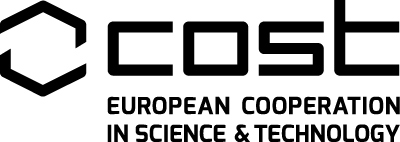Home > COST Action 355: Changing behavior towards a more sustainable transport demand”
Supervisors:
,

Academic degree and current position in TSI: Professor, Dr.sc.ing. Dr.hab.sc.ing, leading researcher of the Engineering Faculty, Director of PhD Programme “Telematics and Logistics”.
Previous Experience: Founder and President of Transport and Telecommunication Institute for over 15 years, Vice-rector for Research and Development Affairs for more than 10 years
Membership: Member of the Joint OECD/ITF Transport Research Committee (OECD – Organization for Economic Co-operation and Development, ITF – International Transport Forum), Member of Institute of Electrical and Electronics Engineers (IEEE), Corresponding Member of Latvian Academy of Science, President of Latvian Transport Development and Education Association, President of Latvian Operations Research Society, Editor-in-Chief of the Journal “Transport and Telecommunication”, Member of the board of the Journals “Transport”, “Technological and Economic Development”, “Journal of Aviation Technology and Engineering” etc.
Academic experience: Author of more than 600 academic and research publications, author of 68 patents. Expert of the Latvian Council of Science in Civil and Transport Engineering, Chairman of promotion council for PhD degree in Civil and Transport Engineering, Chairman of Professor Council in Telematics and Logistics.
Teaching at post- and graduate level: 45 years of pedagogical experience in university; courses: Research Methodology (PhD programme); New Trends of Telematics and Logistics Development (PhD programme), Research Methodology (MSc programme), Theory of Systems and System Analysis (MSc programme), Transport Policy (MSc programme), Intelligent Transport Systems (MSc programme), Reliability Engineering (BSc programme) etc.
Participation in projects: has participated in 37 international projects (in 26 projects as national coordinator of the projects) and 26 Latvian research projects and programs (in 23 as head of the projects) within the frame of COST Activities, Horizon 2020, Framework Programs, INTERREG etc.
Research Interests: Transport Telematics and Logistics, Smart Cities, Analysis and Modelling of Transport Systems, Intelligent Transport Systems, Reliability of Electronics Systems, Internet of Things, Cyber-Physical Systems, Information Technology Applications, Electronics and Telecommunication, Decision Support Systems, Avionics, Air Traffic Control Systems and others.
Supervised Doctoral, Master and Bachelor Theses: Supervisor of 9 PhD theses and more than 200 Master and Bachelor theses.
Awards: 2 Gold and 5 Silver Medals of International Research and Innovation Exhibition of Innovators (1985-1990); Honorary title “Latvian Honored Inventor”, Latvian Parliament (1989); Award for Innovative Excellence in Teaching, Learning and Technology, USA (1998); Award and memorial medal for outstanding research in computer science and informatics, Latvian Academy of Sciences (2001); Award and memorial medal for outstanding performance of research in air navigation, communication and radar technology, Latvian Academy of Sciences (2002); Certificate of Recognition as a significant contribution to the research and educational work in the transport, logistics and information technology, as well as on the international success in science, Cabinet of Ministers of the Republic of Latvia (2014); Certificate of Honor of the Latvian Academy of Sciences for research in the field of transport and logistics (2019).

Current transport behaviour leads to increasing congestion of the infrastructure, growing dependence on imported fossil fuels, continually rising energy demand, and growing CO2 emissions. The road infrastructure system is failing to cope with the amount of traffic. There is a broad consensus in the declared policies of local, national and international agencies that this trend is not sustainable in the longer term, so that one of the major roles of transport policy is to manage, slow down or reverse this process. This is particularly the case in metropolitan areas, and concerns both personal travel and freight transport. Four main types of behavioural changes might help to achieve this objective:
In order to promote a more sustainable transport system, it is essential to(a) understand the determinants of individuals and firms travel and transport decisions and how these could be influenced in various time perspectives and (b) to monitor in an accurate and timely fashion the effects of specific policies, so that an optimal policy mix can be assured. This requires the development and implementation of observational and analytical tools, which enable the investigation of changes in transport and travel behaviour and the conditions necessary to promote these changes.
A shift to sustainable forms and means of transport is also a main goal of the transport policy documents in the EU Member States and other European countries.
A number of projects and studies have been conducted in this field, not only by the EC, but also by the OECD, ECMT (European Conference of Ministers of Transport) and other international organisations and on the national and regional level. Results of the recent research activities have been implemented into practice and some of these measures have already brought significant improvement, particularly if supported by the relevant economic tools.
The main objective of the Action is to develop a more rigorous understanding of the conditions under which the process of growing unsustainable transport demand could be reversed, by changing travellers’, shippers’ and carriers’ behaviour.
A secondary objective of this Action is to bring potential solutions for a long-term vision related to this problem:
Sharing of data resources, methodological advances and empirical results is clearly more cost effective and beneficial from a research point of view. There is also a need to combine different data sources (surveys and administrative data), especially for comparative analyses between urban areas.
Traditionally transport data collection has focused on the production of net accounting statistics. However, for the proper assessment of change this is problematic, since changes occur in various directions, but in most instances the changes do not totally counterbalance each other: e.g. the urban sprawl and increase of number of households using more than one car. Population groups concerned by each of these movements are not the same, and their behaviour is not sensitive to the same factors (prices, regulations, etc.). Thus in order to understand the development over time and its determining factors, it is insufficient to look at the net changes; instead the behaviour of different individuals at different points in time must be considered. Concerning data collection and the related analytical methods, there are two main ways to address this question:
Referring to theoretical discussions about equilibrium, for a better understanding of the conditions of change, one cross-section (snapshot) is not enough: only repeated observations or “moving pictures of trajectories” (i.e. panel surveys) are adequate tools. The collection of such data is very costly and presents difficulties over the longer period; in addition their analysis is not straightforward (e.g., a clear assessment of what is due to transport supply and to the socioeconomic context).
Because of the difficulties listed above, relatively limited longitudinal data resources exist. One exception is the socio-demographic panel initiated by EUROSTAT in 1994, which is harmonised across European countries. Unfortunately, this survey contains little information on transport, with the exception of car ownership. Effort to collect and analyse panel data are being conducted separately in a number of European countries with the main documents in different languages, either mobility or car ownership panels and repeated surveys. This means there is a need to combine different data sources from several projects, dealing with mobility, time use and expenditure surveys and the EUROSTAT project concerned with developing statistical methods for sharing and combining transport, environment and health data.
Concerning freight transport, the collection of data aiming at the analysis of firms’ behaviour has developed later than that for passengers’. The existing methods include:
Prospective methods, Stated Preferences and Stated Responses have been developed both for passengers and for freight and the Action will involve teams in these fields. There is also a common interest in methodological issues such as the optimising of sample schemes and the treatment and correction of non-sampling errors, such as non-response.
In addition several groups are actively involved in promoting new technologies for tracking (for vehicles, travellers or shipments), web-based methods for panel surveys and in the archiving and use of ITS data sources for assessment and monitoring of policy impacts.
This COST Action opens the opportunity to harmonise the design of mobility surveys, create comprehensive international databases, compare available analysis through different countries and disseminate acquired knowledge on mobility to different audiences, including national governmental decision-makers.
In this COST Action, the scope is limited to three crucial topics. For a sound administrative and scientific organisation, each of them is treated by a rather autonomous Working Group. Two levels of network membership are foreseen: the active participants in the Action through its Working Groups and Short Term Scientific Missions, and the people only interested in the outputs, which are essential for the dissemination. In parallel the user’s demand will be established. It is important that long term and short-term issues correspond with the policy goals proposed by decision-makers.
Much research is carried out in Europe and elsewhere which is of relevance for the topic under study. It is important to learn from this and avoid duplication of work. Therefore after defining the methodological guidance, the second step will be an inventory of the various aspects of interest using state-of-the-art knowledge.
The understanding of the determinants of demand in vehicle-kilometre as well as its consequences on energy consumption and pollution is much less satisfactory for freight than for passenger transport, although effective action in order to reduce the consequences of freight traffic requires a thorough understanding of the factors that motivate logistical choices. Conventional data sources on freight traffic (e.g. administrative data for inland waterways, information delivered by rail companies, truck surveys, etc.) are split mode by mode. The first step is to observe energy consumed for the transport of the shipment all along the chain for improving the analysis of intermodality. Further on, the whole supply chain has to be considered in the changing context of globalisation (e.g. industrial structure for different sectors) and its impact in urban areas as well as in corridors for long distance traffics.
Although they are seldom available, panel data exist on transport (e.g. car ownership in the EUROSTAT socio-economic panel, car ownership and annual mileage, the German mobility panel, family expenditure surveys). The comparability of data collected through such different instruments has to be examined carefully. Specific issues of these survey designs have to be tackled, as well as methodologies adapted to the analysis of this kind of data (panel econometrics, duration modelling, etc.). Also advantages and drawbacks of true panel versus pseudo panel data have to be considered.
Case studies will focus on car dependence, sensitivity to fuel price, inequities, travel to work, land use and travel behaviour.
Most of the data on mobility are collected through conventional instruments. The analysis of changes in behaviour supposes the comparability of these instruments over time, but also between countries and urban areas all over Europe. A first issue is whether these surveys are conducted from time to time (generally with increasing time intervals) or on a continuous basis in certain countries.
New technologies (e.g. mobile phone, GPS and Galileo) can help to improve the accuracy for time (departure, arrival, trip duration) and location (origin, destination, trip distance). Since all data needed for a comprehensive analysis of changes in behaviour cannot be collected in the same survey, pairing different data sources (e.g. trip based surveys with time use or family expenditure surveys) is an important issue.
The information obtained in Working Groups 1 to 3 will be summarised in a Final Report, presenting each Working Group together with conclusions and recommendations. The identified white spots will be described, which should be useful as input for future research. Specific dissemination tools have to be defined for various groups of recipients, particular emphasis given to the scientific community and practitioners (policy makers and industry), in order to help the orientation of firms’ and households’ behaviour towards more sustainable mobility.